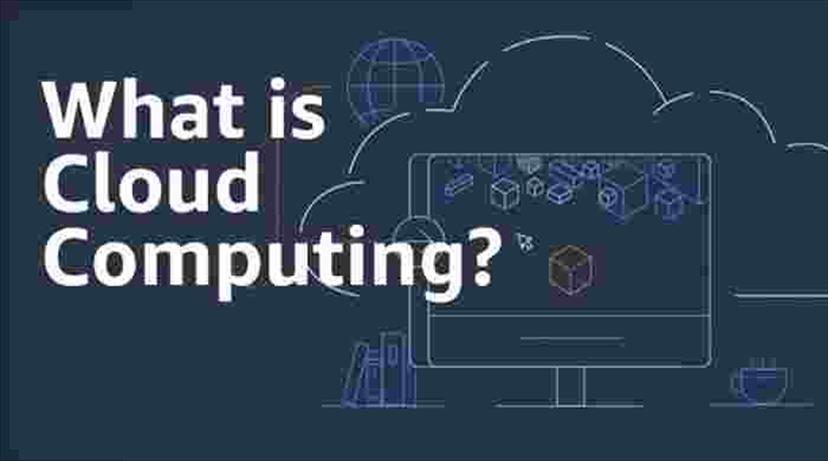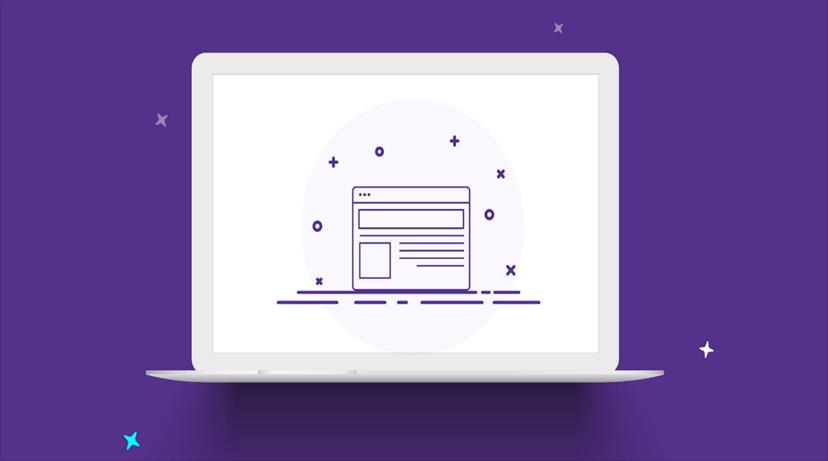One of the best company to work and IT solutions. Delivered product quickly and very fast. It was really mice working with them. I will give them move orders.
- Whatsapp Chat
- Telegram Chat
- Email: info@tritansolutions.com
- Skype:
- Login / Register
What is Cloud Computing What Are Its Benefits Big Blog Guide
Cloud computing is a general term for anything that involves delivering hosted services over the internet. It is the delivery of services through the Internet.

What is Cloud ERP Software?
Cloud-based computing (similarly named Software as a Service, or SaaS) enables customers to access various software applications that regulate shared computing aids (for example, processing power, memory, and disk storage) via the Internet. These computing aids are sustained in remote data centers assigned to hosting numerous applications on various platforms.
Cloud ERP is Software as a Service that enables users to access Enterprise Resource Planning (ERP) software over the Internet. Cloud ERP commonly has much lower upfront expenses, because computing aids are rented by the month rather than bought outright and retained on-premises. Cloud ERP moreover provides businesses access to their business-critical applications at any moment from any locality.
While technically the only distinction between Cloud ERP and ERP is where the software is physically stored, there are different crucial variations too. Here we clarify some of the crucial aspects and benefits of Cloud ERP software.
The Cloud is extremely helpful to minor and medium-sized companies (SMB’s) because it gives access to full-function applications at a reasonable rate without a significant upfront expense for hardware and software. Utilizing the favorable cloud provider, a business can promptly scale its business productivity software as its company thrives.
The Benefits of Cloud Computing in 2021-
Cloud ERP has been demonstrated to lessen expenses in numerous ways because it:
1) Avert upfront costs for all computing infrastructure such as hardware and data servers.
2) lessens IT support services because IT support is given by the data center.
3) Indicates paying upfront for application software licenses in return for a monthly payment.
4) Shrinks the expense of protecting and assisting those applications since the cloud dealer oversees the updates and improvements.
The most crucial advantages of Cloud ERP go beyond cost-savings and comprise of :
1) Compensating only for the computing resources required
2) A monthly rate so businesses can utilize their money on additional business initiatives
3) Taking advantage of Cloud ERP applications promptly since the installation of hardware and software on servers or user devices is not required.
4) The capacity to modify the amount of cloud service as an organization’s computing or storage needs modifications.
5) Enjoying the faith that the data has been backed up and there is a disaster recovery agenda.
6) Averting attacks on the organization’s server because the data is not stocked locally, but in the cloud.
7) Accessing the system from anywhere makes it simple for an organization to broaden geographically since the Internet is everywhere and there is no necessity to execute hardware and software at distant locations
There are numerous advantages of cloud ERP computing, but not all Cloud ERP is similar. To learn more about the variations read this blog. This blog guide will encourage you to comprehend the various categories of cloud ERP models; determine which model will best align with your corporation’s policy, workloads, performance, and security necessities; and know-how to assess distinct cloud ERP solutions.
What is cloud computing in 2021?
Cloud computing refers to the on-demand delivery of IT resources over the Internet with pay-as-you-go pricing. Rather than purchasing, owning, and retaining physical data centers and servers, you can access technology assistance, such as computing power, storage, and databases, on an as-needed rationale from a cloud provider like Amazon Web Services (AWS).

Who is utilizing cloud computing in 2021?
Companies of every category, size, and enterprise are utilizing the cloud for a broad variety of use cases, such as data backup, disaster recovery, email, virtual desktops, software development, and testing, big data analytics, and client-facing web applications. For instance, healthcare corporations are utilizing the cloud to cultivate extra personalized medications for patients. Financial assistance corporations are utilizing the cloud to strengthen real-time extortion detection and deterrence. And video game makers are utilizing the cloud to provide online games to millions of players around the globe.
Advantages of cloud computing.
Cloud computing brags various desirable advantages for companies and ends users. Some of the crucial benefits of cloud computing are:
1) Agility
The cloud gives you modest access to a vast expanse of technologies so that you can innovate promptly and develop almost anything that you can interpret. You can rapidly spin up resources as you desire them–from infrastructure services, such as compute, storage, and databases, to the Internet of Things, machine learning, data lakes and analytics, and much more.
You can deploy technology assistance in a matter of moments, and get from the idea to implementation of numerous orders of size rapidly than before. This provides you the autonomy to experiment, test fresh ideas to distinguish customer experiences, and transform your company.
2) Elasticity
With cloud computing, you don’t have to over-provision aids up front to deal with peak categories of business actions in the prospect. Rather, you provision the volume of resources that you require. You can gauge these resources up or down to rapidly flourish and diminish ability as your company needs modifications at regular levels.
3) Cost savings
The cloud enables you to trade capital expenditures (such as data centers and physical servers) for varying payments and only pay for IT as you expend it. Moreover, the varying expenditures are much lower than what you would pay to do it yourself because of the frugality of scale.
4) Deploy globally in instants
With the cloud, you can broaden to fresh geographic regions and deploy globally in moments. For instance, Tritan Solutions has infrastructure all over the globe, so you can deploy your application in considerable physical locales with just a few clicks. Putting applications in the nearer locality to end-users lessens latency and enhances their experience.
5) Cost savings
Utilizing cloud infrastructure can lessen expenses, as companies don't have to spend huge amounts of wealth in buying and strengthening equipment. This lessens their capital expenses -- as they don't have to capitalize in hardware, facilities, utilities, or building huge data centers to adapt to their thriving businesses.
Besides, corporations don't require huge IT teams to regulate cloud data center operations because they can depend on the aptitude of their cloud providers' companies. Cloud computing also reduces expenses associated with downtime. Since downtime hardly occurs in cloud computing, corporations don't have to spend time and wealth to rebuild any issues that may be associated with downtime.
6) Mobility
Cataloging data in the cloud implies that users can access it from anywhere with any appliance with just an internet connection. That implies that users don't have to take around USB drives, an exterior hard drive, or numerous CDs to access their data. Users can access corporate data via smartphones and additional mobile appliances, facilitating remote workers to stay up to date with co-workers and clients.
End users can handily refine, stock, retrieve and recover resources in the cloud. Furthermore, cloud dealers give all the upgrades and updates automatically, conserving time and endeavors.
7) Disaster recovery
All businesses concern about data loss. Stocking data in the cloud ensures that users can constantly access their data even if their devices, e.g., laptops or smartphones, are ineffective. With cloud-based assistance, companies can rapidly regain their data in the circumstances of crises, such as natural disasters or power cuts.

Categories of cloud computing
The 3 major categories of cloud computing comprise Infrastructure as a Service, Platform as a Service, and Software as a Service. Each category of cloud computing gives several categories of supervision, flexibility, and administration so that you can choose the right set of assistance for your necessities.
1) Infrastructure as a Service (IaaS)
IaaS comprises the fundamental building blocks for cloud IT. It commonly gives access to networking characteristics, computers (virtual or on dedicated hardware), and data storage space. IaaS provides you the increased category of flexibility and management supervision over your IT resources. It is vastly associated with the existing IT resources with which several IT units and developers are familiar.
2) Platform as a Service (PaaS)
PaaS reduces the necessity for you to supervise underlying infrastructure (usually hardware and operating systems) and enables you to concentrate on the deployment and administration of your applications. This enables you to be extra productive as you don’t wish to concern about resource procurement, software quantity planning, software supervision, patching, or any of the other heavy lifting involved in operating your application.
3) Software as a Service (SaaS)
SaaS gives you a comprehensive product that is operated and supervised by the service provider. In extreme cases, people referring SaaS are associating to end-user applications (such as web-based email). With SaaS assistance, you don’t have to understand how the service is retained or how the underlying infrastructure is governed. You only need to understand how you will utilize that specific software.
• Some of the major windfalls of cloud computing are:
1) Elasticity: Companies can voluntarily scale up as computing to boost, and scale down again as demands drop. This excludes the demand for huge investments in local infrastructure, which may or may not remain effective.
2) Pay per use: Compute resources are assessed at a granular level, facilitating users to pay only for the aids and workloads they utilize.
3) Workload resilience: Cloud service providers frequently implement repetitious aids to ensure resilient storage and to save users' crucial workloads operating -- frequently across numerous global regions.
4) Migration flexibility: Companies can move specific workloads to or from the cloud -- or to numerous cloud platforms -- as desired or automatically -- for favorable expenditure savings, or to utilize new services as they arise.
5) Broad network access: A customer can access cloud data or upload data to the cloud from anywhere with an internet connection and utilizing any mobile appliance.
6) Multi-tenancy and resource pooling strategy: Multi-tenancy lets several clients share similar physical infrastructures or similar applications, however still protects privacy and insurance over their data. With resource pooling, cloud providers help various clients from the exact physical resources. The resource pools of the cloud service providers should be very huge and creative enough so they can service the requirements of numerous clients

Conclusion -
Tritan Solutions has more services, and innovative features, than any other cloud provider, comprising of computing, storage, databases, networking, data lakes and analytics, machine learning and artificial intelligence, IoT, security, and much more in 2021. A detailed portfolio of our solutions that enable you to solve broad dilemmas and create solutions rapidly utilizing our platform. Our cloud software Solution comes with comprehensive architecture, a deployment blog guide, and instructions for both automated and manual deployment.
Tritan Solutions Cloud ERP gives a profitable business management solution for revamping your business to sprout in the new digital economy of 2021. Created on a future-proof platform with open architecture for instantaneous integrations, scalability, and ease of usage, we provide remarkable value to small and mid-market companies.







